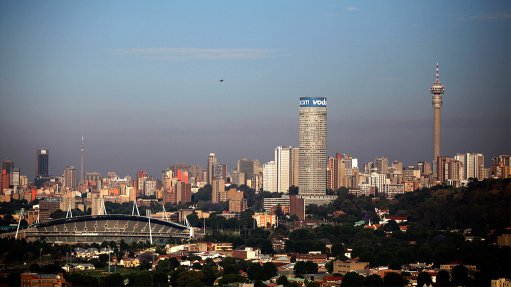Resilience, natural resources become key as global food security deteriorates slightly
The Global Food Security Index (GFSI) showed a deterioration for the second year in a row in 2020, with the affordability, quality and safety, and natural resources and resilience categories deteriorating, with only the availability category showing marginal improvement, says economic research and analysis organisation Economist Intelligence Unit GFSI project leader Pratima Singh.
Of the 113 countries measured as part of the index, 62 showed a year-on-year deterioration.
Singh says these results are worrying, but not surprising given the impact of Covid-19, which had an immediate effect of reducing income levels that affected affordability. Sixty-six of the 113 countries saw a drop in affordability index scores.
A key policy consideration that the GFSI highlights is the need to strengthen social and food safety nets to be able to withstand crises. Only 55 countries have a sufficiently funded national food safety programme, and the majority of countries lack such a programme, she notes.
“It is especially during crises that we can see the gaps and structural challenges are exacerbated during times of crisis.”
This year, the GFSI formally includes natural resources and resilience as a fourth main category. This addition marks a significant shift in methodology, revealing food systems’ resiliency against climate change.
The global decline in food security in 2020 comes after seven years of consistent improvement.
"The global pandemic has starkly exposed the strengths and vulnerabilities of our food supply system, revealing the role of persistent inequality in driving food insecurity," states Singh.
Sub-Saharan African countries recorded the weakest average performance across all regions examined in the latest GFSI report. Rising food prices were the main factor driving deterioration in the overall food security environment. Along with persistently high levels of poverty, the region has experienced significant food price volatility in the past decade. However, food availability has improved.
“The GFSI is a benchmarking tool for policy makers and allows stakeholders to identify the underlying drivers of food security and their strengths, weaknesses and progress to achieving food security. The report also includes best practices and highlights areas where action is needed.”
The natural resources and resilience category had previously been included as a sub-category since the 2017 index, and it was included as a main category to determine how countries are responding to risks and climate change to build sustainable food systems, says Singh.
The natural resources and resilience category aims to support building resilience through monitoring countries' adaptations to climate risks and allows policy makers to understand how food security is connected to climate change risks. The category also allows them to identify opportunities and areas to improve, including building capacity to ensure these risks to food security are addressed.
The GFSI is sponsored by agricultural inputs and technology company Corteva and produced by the Economist Intelligence Unit.
South Africa was ranked 69 out of 113 countries, and ranked the highest in sub-Saharan Africa, followed by Botswana at 74, Ghana at 77, Mali at 79, and Côte d'Ivoire at 82.
South Africa received strong scores in seven indicators, achieving 94.3 points for the country’s food safety, which includes national nutrition plans, dietary diversity and guidelines, nutritional monitoring and access to drinking water. and the presence of food safety net programmes, such as public initiatives that protect the poor from food-related shocks, says Corteva Agriscience in South Africa business director Tony Esmeraldo.
“When it comes to quality and safety of food, which remains a challenge in sub-Saharan Africa, South Africa ranked number one, while in affordability and availability it came in second and ninth positions respectively.”
Although the country scored poorly in volatility of agricultural production and food security and access policy commitments, there is improved performance in food safety, more investment in agriculture research and development, low dependency on food imports, as well as dependency on natural capital, and crop storage facilities, which are critical for ensuring sufficient food supply.
“Food security will require significant investment in research and development to increase the production potential of South African farmers. New technologies and adoption of more sustainable farming practices and the development and adoption of digital platforms to manage and use data to make better decisions across the food chain are required to improve food security,” Esmeraldo concludes.
Article Enquiry
Email Article
Save Article
Feedback
To advertise email advertising@creamermedia.co.za or click here
Press Office
Announcements
What's On
Subscribe to improve your user experience...
Option 1 (equivalent of R125 a month):
Receive a weekly copy of Creamer Media's Engineering News & Mining Weekly magazine
(print copy for those in South Africa and e-magazine for those outside of South Africa)
Receive daily email newsletters
Access to full search results
Access archive of magazine back copies
Access to Projects in Progress
Access to ONE Research Report of your choice in PDF format
Option 2 (equivalent of R375 a month):
All benefits from Option 1
PLUS
Access to Creamer Media's Research Channel Africa for ALL Research Reports, in PDF format, on various industrial and mining sectors
including Electricity; Water; Energy Transition; Hydrogen; Roads, Rail and Ports; Coal; Gold; Platinum; Battery Metals; etc.
Already a subscriber?
Forgotten your password?
Receive weekly copy of Creamer Media's Engineering News & Mining Weekly magazine (print copy for those in South Africa and e-magazine for those outside of South Africa)
➕
Recieve daily email newsletters
➕
Access to full search results
➕
Access archive of magazine back copies
➕
Access to Projects in Progress
➕
Access to ONE Research Report of your choice in PDF format
RESEARCH CHANNEL AFRICA
R4500 (equivalent of R375 a month)
SUBSCRIBEAll benefits from Option 1
➕
Access to Creamer Media's Research Channel Africa for ALL Research Reports on various industrial and mining sectors, in PDF format, including on:
Electricity
➕
Water
➕
Energy Transition
➕
Hydrogen
➕
Roads, Rail and Ports
➕
Coal
➕
Gold
➕
Platinum
➕
Battery Metals
➕
etc.
Receive all benefits from Option 1 or Option 2 delivered to numerous people at your company
➕
Multiple User names and Passwords for simultaneous log-ins
➕
Intranet integration access to all in your organisation

















